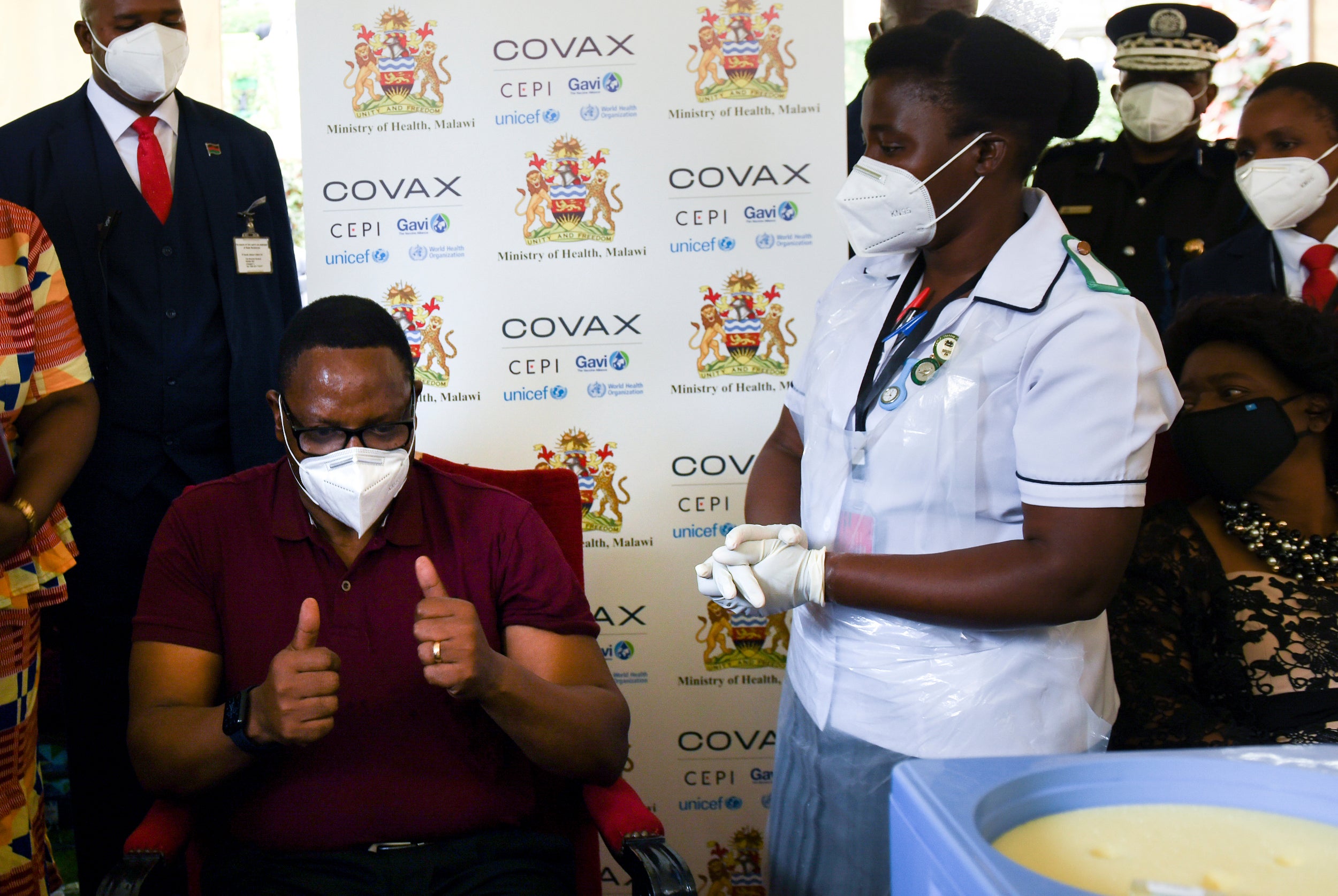Africa seeks 'continental capacity' to produce vaccines
The director of the Africa Centers for Disease Control and Prevention says that as Africa strives to vaccinate 60% of its 1.3 billion people as quickly as possible, the continent must develop its capacity to produce COVID-19 vaccines

Your support helps us to tell the story
From reproductive rights to climate change to Big Tech, The Independent is on the ground when the story is developing. Whether it's investigating the financials of Elon Musk's pro-Trump PAC or producing our latest documentary, 'The A Word', which shines a light on the American women fighting for reproductive rights, we know how important it is to parse out the facts from the messaging.
At such a critical moment in US history, we need reporters on the ground. Your donation allows us to keep sending journalists to speak to both sides of the story.
The Independent is trusted by Americans across the entire political spectrum. And unlike many other quality news outlets, we choose not to lock Americans out of our reporting and analysis with paywalls. We believe quality journalism should be available to everyone, paid for by those who can afford it.
Your support makes all the difference.As Africa lags in its efforts to vaccinate 60% of its 1.3 billion people as quickly as possible, the continent must develop the capacity to produce its own COVID-19 vaccines, the director of the Africa Centers for Disease Control and Prevention said Thursday.
With deliveries of vaccine doses, several African countries have begun giving jabs to launch mass inoculation campaigns. Malawi s president got a shot Thursday and South Africa is vaccinating its front-line health care workers.
African countries are getting vaccines from the international COVAX initiative and from donors like India, China and Russia, which are producing vaccines. But much larger volumes of doses are needed for the massive campaign to inoculate more than half of the continent's people.
Africa's dependence on imported vaccines may well be a hindrance to the inoculation drive, health experts say.
At least five African countries appear to have the capacity to produce vaccines, Africa CDC director, Dr. John Nkengasong, said in a press briefing, citing South Africa, Senegal, Tunisia, Morocco, and Egypt.
Nkengasong had previously set the goal of vaccinating 60% of Africa's population by the end of this year, but the target is now a year later: by the end of 2022.
A meeting is planned for April 12 between the African Union and outside partners to create a “roadmap” for boosting African capacity to eventually produce COVID-19 vaccines, Nkengasong said.
“It's so important for us to have that,” he said, referring to vaccine security.
Birgitte Markussen, head of the European Union delegation to the African Union, told the briefing that “efforts will be made to support local production" of vaccines. She said solidary is important “to make sure no one is left behind" in global efforts to stop the pandemic.
“As more doses continue to be delivered, the real task will be to ensure rapid deployment of vaccines and associated supplies of equipment in the right condition, the right quantities, and also in the right places,” she said.
She added, “We cannot say that we are safe until everybody is safe.”
At least 22 of Africa's 54 countries have received COVID-19 vaccines through the COVAX initiative to ensure that low- and middle-income countries receive vaccines, said Nkengasong. The shipments range from a few thousand doses to millions sent to countries ranging from Nigeria to Uganda.
Nkengasong said that vaccine arrivals in recent days left him happy and feeling there is “light at the end of the tunnel.”
Some 600 million doses are expected to be delivered to Africa from COVAX, but the facility has faced delays and limited supply.
The goal in Africa is that countries will be able to vaccinate 20% of their population with the COVAX doses by the end of this year. It is an ambitious target but will still leave the continent far from the 60% many say is needed to reach “herd immunity” when enough people are protected through infection or vaccination to make it difficult for a virus to continue to spread.
Africa has reported more than 3.9 million cases of COVID-19, including more than 106,000 deaths. South Africa is the worst affected country, with more than 1.5 million cases and 51,000 deaths.
But the continent saw a 9% decrease in new cases and 16% average decline in the number of deaths over the last four weeks, Nkengasong said.
Since most countries in Africa lack the means to track mortality data, it is not clear how many excess deaths have occurred across the continent since the pandemic began.
___
Follow AP’s pandemic coverage at https://apnews.com/hub/coronavirus-pandemic, https://apnews.com/hub/coronavirus-vaccine and https://apnews.com/UnderstandingtheOutbreak